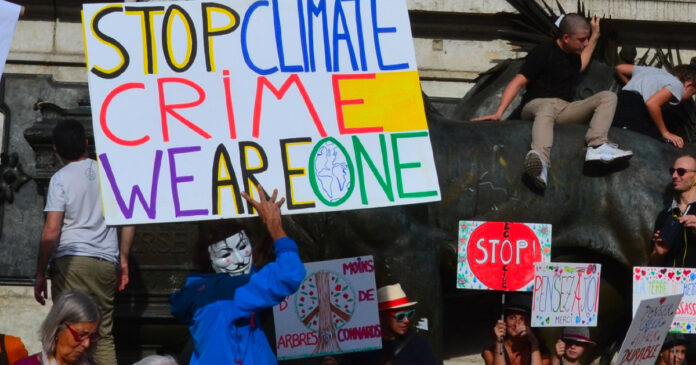A Fraser Institute study found that although global temperatures have increased “moderately” since 1950, there is no evidence to suggest that extreme weather events are on the rise despite the assertions of climate activists and Canada’s government.
The study analyzed data found in the United Nations Intergovernmental Panel on Climate Change (UN IPCC) and found that in many cases the frequency and severity of extreme weather events decreased or stayed the same rather than escalating.
The author of the study, Kenneth Green, a senior fellow at the Fraser Institute spoke to True North about his findings.
Green has a doctoral degree in Environmental Science and Engineering from UCLA, and has been studying environmental policy since before receiving his doctorate in 1984.
“When you dig into the actual underlying data on what’s happening, rather than the claims of politicians, you find that extreme weather events are pretty uncertain as to whether we’re seeing extreme weather changing or will see extreme weather changing,” said Green.
He said the assessments from the UN IPCC authors are subjective and contradict the data found in their own study.
The IPCC claims with “medium confidence” that the frequency of droughts has increased around the world. Though Green found the data they cite from the World Meteorological Organization (WMO) Standardized Precipitation Index, which covers world data from 1901-2017, “indicates no significant trend in drought has occurred.”
A study Green cited from the Royal Society found the drought data, that the IPCC used, showed “a dominance of non-significant trends between 1900 and 2020.”
The IPCC also claimed it is likely floods have increased globally since 1950, yet they also say the data lacks “overall statistical significance of a decrease or an increase over the globe as a whole.”
“Of more than 3,500 streamflow stations in the USA, central and northern Europe, Africa, Brazil, and Australia, 7.1% stations showed a significant increase, and 11.9% stations showed a significant decrease in annual maximum peak flow during 1961–2005,” Green stated in the report.
He said the same is true for hurricanes and cyclones, that the frequency of these events has decreased overtime.
The study found no long term trends in hurricanes and cyclones since 1980, according to data from the WMO.
Along with flooding, hurricanes and cyclones, the study found the rate and intensity of wildfires was declining globally as well.
According to a study by the Royal Society using data from up to 2017 and 2018, “when considering the total area burned at the global level, we are still not seeing an overall increase, but rather a decline over the last decades.”
Green said it’s very important that government policies are rooted in the actual data.
“There’s a lot at stake with regard to climate change policies, they need to be grounded in reality rather than in, speculative scenarios and speculation that is false and possibly exaggerated by climate activists and by governments,” he said. “(The policies are) being based on these exaggerated claims of extreme weather and extreme risk, that are not backed up by the underlying literature and empirical data.”
He said Canadians should not have to make major changes in the way they live based on the subjective opinions of a few.
“The government is taking actions based on speculation and their actions will lead to Canadians having their quality of life impacted as fossil fuel use is suppressed,” Green said.
Green said the policies which are justified by the speculative opinions of studies such as this are destructive.
“The net zero 2050 greenhouse gas emission agenda is going to be quite damaging to Canada’s economy and to people’s incomes.”















